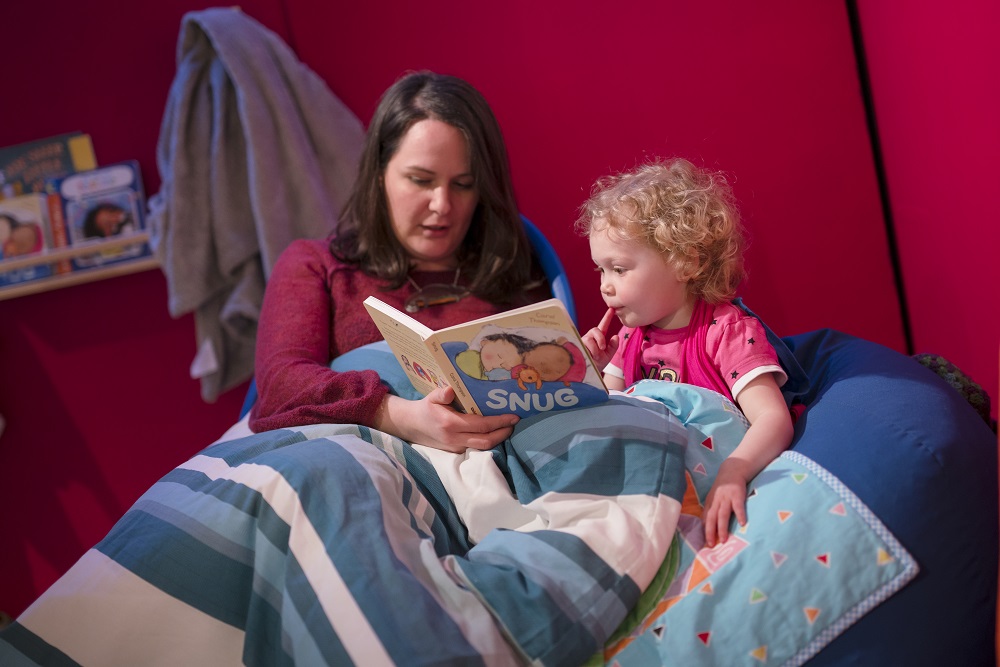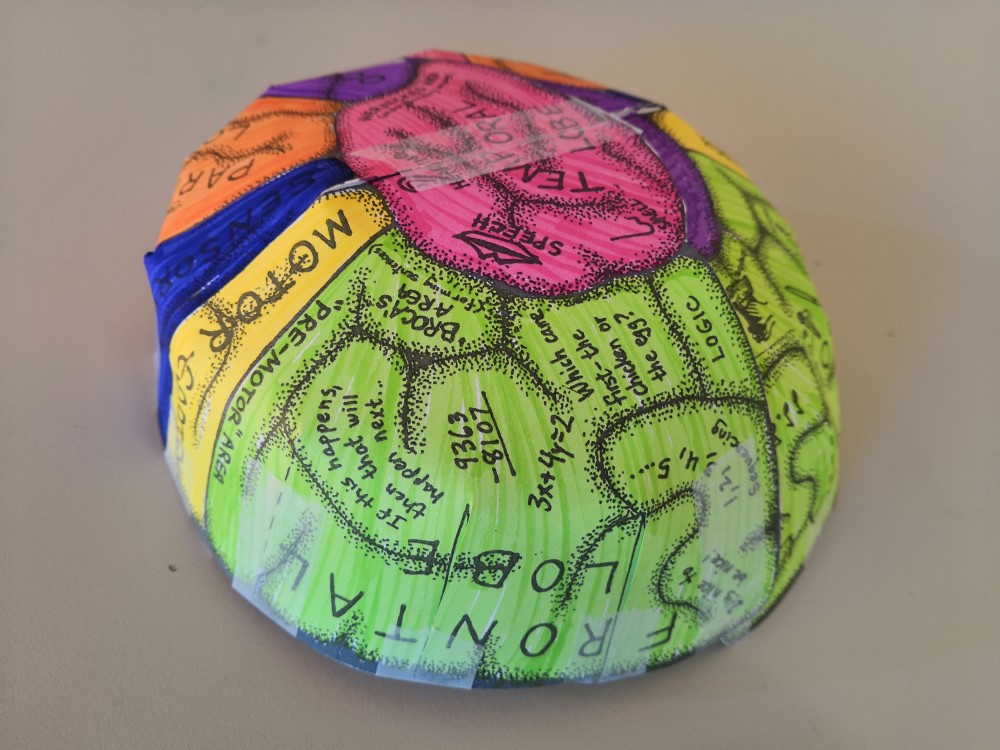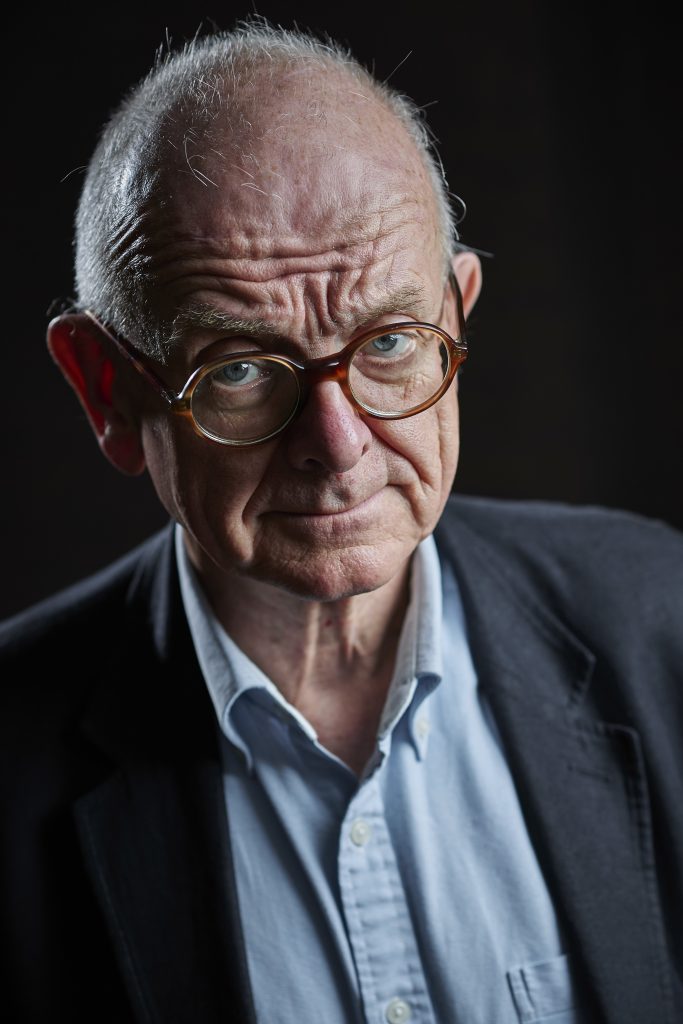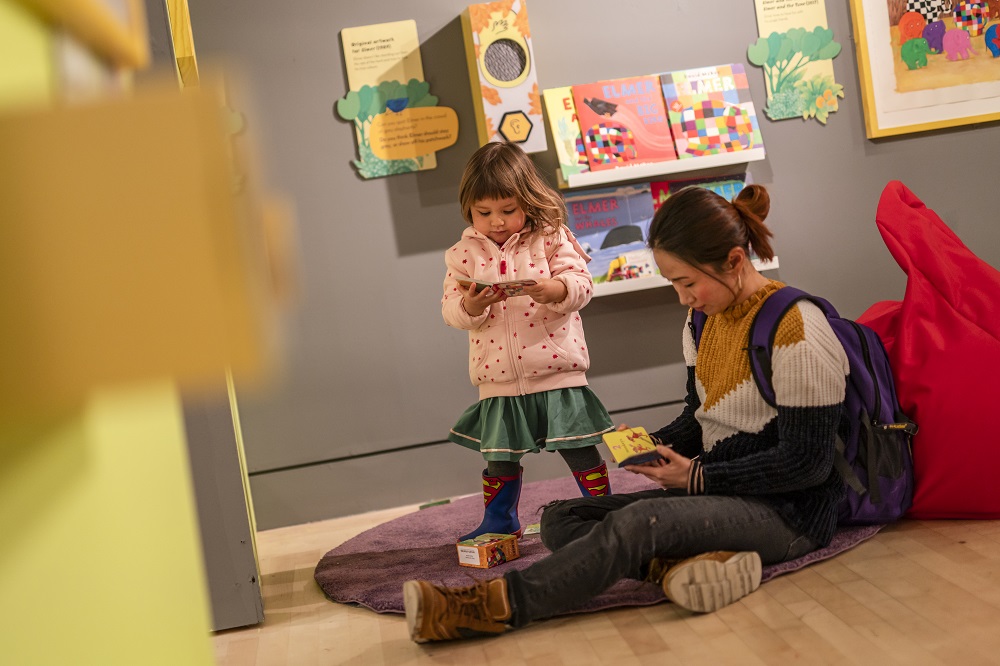How can children’s literature collections contribute to supporting children’s health? Is there a role that Seven Stories: The National Centre for Children’s Books can play in health settings? How can sharing stories enhance children and young people’s mental wellbeing? In this blog post, find out about how Newcastle University and Seven Stories are starting to explore these questions through the Vital North Partnership’s work…
“What happens in pregnancy and early childhood impacts on physical and emotional health all the way through to adulthood… the earliest experiences, starting in the womb, shape a baby’s brain development.”
Health matters: giving every child the best start in life, Public Health England 2016
The first 1001 days of a child’s life are critical. A period of rapid growth, babies’ brains are shaped by their early experiences and interactions they have with the grownups who care for them. Healthy development, including language development, from conception to age two “is linked to improved mental and physical health, reductions in risk and antisocial behaviour and achievement at school and beyond.” (The 1001 Critical Days).
Recent research led by Newcastle University’s Professor James Law from the School of Education, Communication and Language Sciences, which involved Seven Stories in an advisory capacity, concluded that reading with pre-school children boosts language by eight months. Calling for additional support from public health authorities, Professor Law said, “Reading with small children has a powerful effect. For this reason, it should be promoted through people like public health visitors and other public health professionals as this simple act has the potential to make a real difference.”
And beyond early childhood reading, museums are increasingly considering how their programmes can strategically contribute to public health and wellbeing across the life course.

Seven Stories deliver award-winning learning and family reading programmes, which champion reading for pleasure and support literacy development. Seven Stories also have expertise working with children with additional learning and sensory needs, and delivering activities in hospice and other health settings. Newcastle University’s internationally recognised Faculty of Medical Sciences tackles challenges in health and healthcare, including ageing, cancer, cell biology, genetics, drug development, medicine in society and neuroscience. Through the Vital North Partnership, we aim to realise a range of social, educational and cultural benefits – and exploring public health is becoming an increasing area of focus for our work together.
We’re starting to explore how we can collaborate with public health providers and enhance public understanding of health and wellbeing, and we’re already planning some interesting activity. Here’s what I can share so far about our 2019 plans…
What makes us, us?
On Saturday 2nd and Sunday 3rd March 2019, staff and students from Newcastle University’s Institute of Neuroscience and School of Psychology delivered a weekend of activity, ‘What Makes Us, Us?’, at Seven Stories. Led by Dr Ann Fitchett and Dr Billie Moffat-Knox, children and families visiting Seven Stories engaged with Newcastle University students to explore what it means to be human – what we have in common, and what makes us unique. Through different activity stations, families learnt about brain science, why acts of kindness make us happy and how we see colours.

Henry Marsh on ‘brain surgery and other stories’
Thinking about how children’s books can engage with health narratives and medical research, we’re looking forward to this year’s Fickling Lecture on Developments in Children’s Literature with Henry Marsh, neurosurgeon and author. Marsh pioneered techniques in operating on the brain under local anaesthetic and has written two books about his experience as a neurosurgeon.
Henry Marsh will be discussing how doctors, witnesses and participants in the stories of their patients’ lives, are beginning to tell children’s stories about their practice. He will explain what he thinks makes a good medical story for younger readers.

This is part of Newcastle University’s free Insights public lecture series, hosted by the Children’s Literature Unit and Seven Stories, and sponsored by David Fickling Books. The lecture will take place on Tuesday 30th April 2019 and seats are allocated on a first-come, first served basis. I hope you can attend what I’m sure will be a fascinating reflection on children’s books and children’s health. For more information, visit: https://www.ncl.ac.uk/events/noticeboard/item/brainsurgeryandotherstories.html
Enhancing young people’s resilience with Readers in Residence
I’m also very pleased to say that the Vital North Partnership has secured funding from Newcastle University’s Humanities and Social Sciences Faculty Impact Fund to support a new project. This will bring Seven Stories’ Creative Learning and Engagement team and the Children’s Literature Unit together to explore how children’s literature can be used to support young people’s wellbeing.
As part of the project, led by Dr Hazel Sheeky-Bird and Dr Lucy Pearson, Seven Stories will be working with the research team to deliver a version of their Reader in Residence programme in a secondary school setting for the first time, exploring Seven Stories’ Aidan and Nancy Chambers collection and thinking creatively about emotional resilience.
I am excited about the potential impact of this new focus for our work together – and I believe that through the Vital North Partnership, Seven Stories and Newcastle University can enhance and promote public health, and particularly children’s health, in the North East and beyond.


